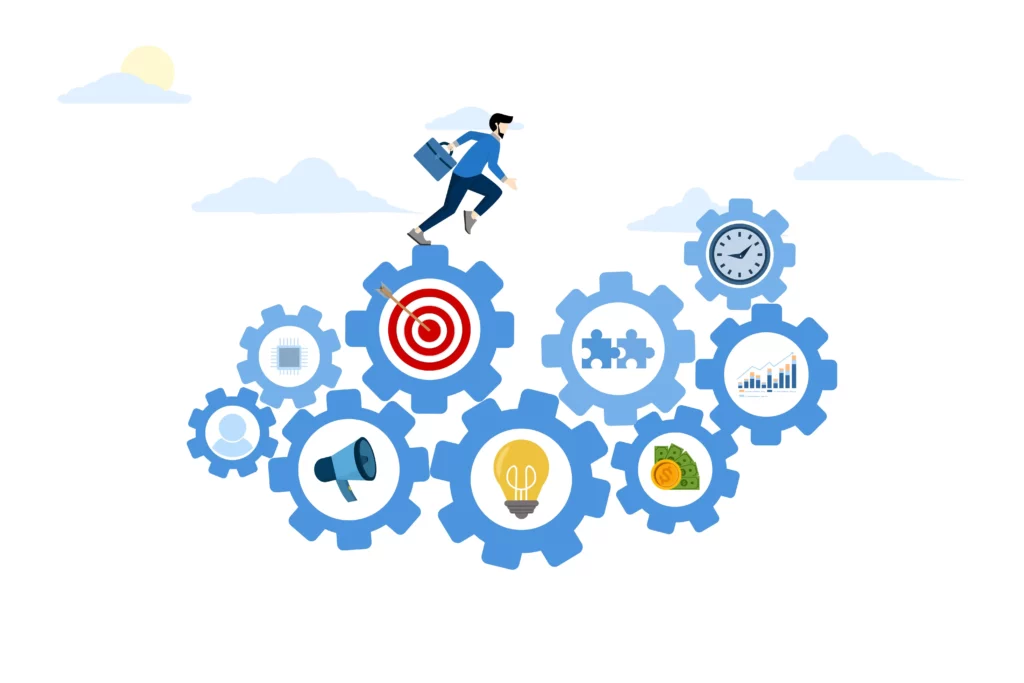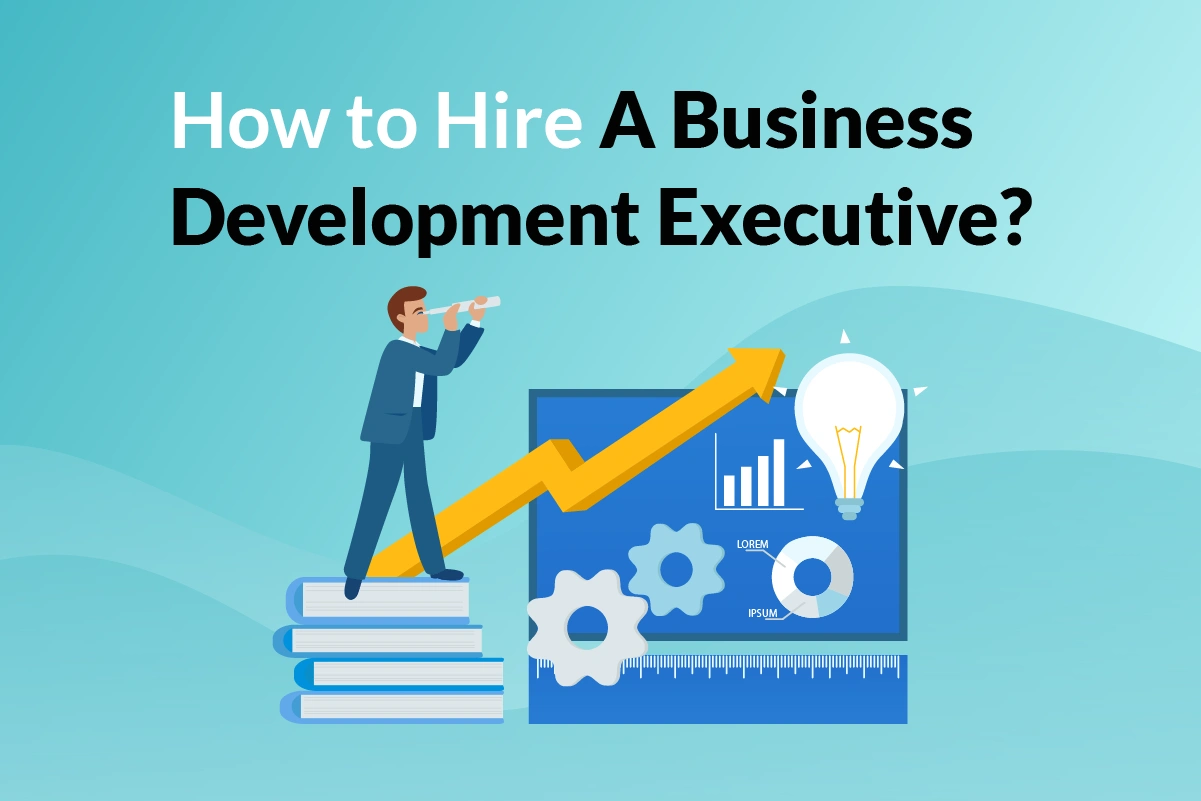When looking for a Business Development Executive, you want someone excellent at networking at events and skilled in making important deals that truly benefit your company. More than just being good at socializing, you need someone who can help your company grow according to your vision. Since there are so many people claiming to be experts in Business Development, it can be hard to tell who is truly qualified.
This guide on “How to hire a business development executive” is here to help you find the right person who fits well with your company’s goals and culture. Let’s get into the details.
- Select priorities from common Business Development Executive job duties
- Define skills you require from a Business Development Executive
- Decide on common pay ranges for your Business Development Executive position
- Publish your role where your ideal candidate will see it
- Conduct an effective interview
- Create and finalize an offer
- FAQs on hiring a Business Development Executive
- Finding top talent with Boulo’s expertise
Every part of this guide is made to help you quickly find the best candidate. Let’s go over the details.
Select priorities from common Business Development Executive job duties
At the onset of finding the ideal Business Development Executive (BDE), the first thing is to lay out specific responsibilities that this role will cover within your organization. This step is foundational to the hiring process, ensuring that both you and the prospective candidate have a clear understanding of the expectations and objectives at hand.
- Proposal Review and Analysis: Part of the role involves carefully looking over sales proposals to make sure they’re good to go and match the market’s demand.
- Market Trend Identification: A key responsibility is to stay ahead of market fluctuations and identify emerging trends that could impact the business.
- Growth Opportunity Exploration: A BDE is also charged with pinpointing potential areas for business growth and devising strategies to capitalize on these opportunities.
- Growth Opportunity Exploration: A BDE is also charged with identifying potential areas for business growth and devising strategies to capitalize on these opportunities.
- Customer Behavior Analysis: This role requires conducting thorough research to understand customer behavior and utilizing these insights to refine sales strategies.
- Strategic Sales Planning: Based on customer feedback and interactions, a BDE must be able to implement effective sales plans.
- Risk Management Collaboration: Working closely with team members to identify and mitigate potential business risks.
- Client Relationship Building: A BDE should excel in creating strong relationships with clients, ensuring their needs are met with precision.
A well-outlined job description aids in attracting the right candidates and ensures a smoother onboarding process.
Define skills you require from a Business Development Executive
To excel as a Business Development Executive, one must possess a diverse range of abilities. These essential skills significantly contribute to the overall success:
- Communication Skills: The ability to clearly express ideas and information.
- Presentation Skills: They should be adept at presenting ideas and strategies in a manner that is both persuasive and engaging.
- Negotiation Skills: Proficiency in negotiation is crucial to getting deal closed while maintaining company priorities.
- Industry Knowledge: A comprehensive understanding of the industry, market trends, and competitors is essential. This can be learned as long as they have a mentor able to invest the time.
- Creative Thinking: They should be able to think outside the box and develop innovative solutions.
- Strategic Planning: The ability to develop and implement effective growth strategies is a must.
- Listening Skills: They must be attentive listeners to understand the needs of clients and stakeholders.
- Teamwork: They should be able to collaborate effectively with various teams within the organization.
- Self-Motivation: Being self-driven and target-oriented is important to achieve business objectives.

Prerequisites:
- Educational Background: Candidates could have a Bachelor’s degree in fields like Business Administration, Marketing, and Finance or prior experience as a Business Development Executive. A degree in this role is not as important as prior experience or clear strengths in the above soft-skills.
- Relevant Coursework: Coursework that emphasizes sales techniques, market analysis, economics, and business strategy is highly beneficial.
- Certifications (Optional): Certifications in sales, marketing, or business development can enhance a candidate’s profile and demonstrate specialized knowledge but should not be required.
Now that you’ve narrowed down the skills and have a clear job description, you’ll have a better chance of receiving applicants that are a great fit for your role.
Decide on common pay ranges for your Business Development Executive position
Regarding hiring a Business Development Executive, offering the right salary can make or break the deal, plus a commission scheme that truly reflects the value they’ll add to your business. This range should include industry norms while also considering the value the executive will introduce to your establishment.
Here’s a breakdown of the salary data we’ve referenced from Indeed:
- Entry-Level Business Development Executive: Approximately $33,354/ a year
- Average Annual Salary: $66,630/ a year
These are merely benchmarks to adjust the salary to fit the unique needs of your company, taking into account factors like:
- The geographical location of your organization.
- The size and industry of your company.
- The specific responsibilities and skills required for the position.
These salary numbers can differ based on variables such as the job’s location, the hiring company’s profile, and the potential for overtime. By providing a salary and commission package that’s both competitive and in line with industry norms, you set yourself up to attract and retain top talent in the market.
Publish your role where your ideal candidate will see it
The question often arises – where to hire a business development executive?
To hire the right Business Development Executive, start with sharing your job post in the right places. While popular sites like LinkedIn and Indeed are options, they have millions of job listings, making it challenging for your post to stand out. Moreover, big and well-known brands often dominate these platforms, pulling applicants away from your role.
That’s where Boulo comes in, especially for smaller and medium-sized businesses.
Key Points:
- Boulo: Boulo’s candidates are experienced women, mothers, and caregivers — a group not commonly seen on other job platforms. These candidates have 10 years of experience in various fields, including marketing, finance, project management, and software engineering. By choosing to post your Business Development Executive role on Boulo, you are connected to a pool of seasoned professionals with diverse life experiences, ready to make an immediate impact on your team.
Conduct an effective interview
Once you have your potential candidates lined up, it’s time to evaluate their fit.
The resume leads them to you, but catching how they think and solve problems in the interview makes sure that you’ve uncovered their real strengths and weaknesses.
Here are some questions you can ask to know their capabilities:

- Market Understanding: “Can you describe a time when you identified a new market opportunity? How did you go about it?”
This assesses their market awareness and ability to recognize and capitalize on new business opportunities. - Deal Closing: “Share an example of a challenging deal you closed. What was your approach and how did you overcome the obstacles?”
This question evaluates their persistence, negotiation skills, and strategies for overcoming challenges in sales. - Relationship Building: “What’s your strategy for building and maintaining relationships with clients or partners?”, “What tools have you used to record your interactions and organize your contacts?”
This reveals their interpersonal and communication skills, which are crucial for maintaining long-term business relationships. It also shows whether they are used to using technology to organize their priorities. - Rejection Handling: “Tell me about a time when you lost a deal. How did you handle it, and what did you learn from the experience?”
This gives insight into how they handle setbacks and grow from them. - Collaboration with Teams: “How do you work with other departments, such as sales and marketing, to achieve business objectives?”
This question uncovers their ability to collaborate and work effectively in a team-oriented environment. - Customer Retention: “What strategies would you employ if one of our clients was considering switching to a competitor?”
This tests their strategic thinking and problem-solving skills in customer retention cases. - Task Management: “Given that this role requires multiple tasks, how do you prioritize and ensure everything gets done efficiently?”
It’s key to find out how they manage a busy workload and keep things running smoothly.
The answers to these questions can offer deep insights into the candidate’s critical thinking, problem-solving skills, and their approach to key challenges they might face in the role.
Create and finalize an offer
After completing the interview stage and choosing the Business Development Executive who fits your company’s requirements and culture, the next step is to finalize your offer.
Put forward a hiring package that’s in line with the industry’s norm and consider what the candidate brings to the table.
Key components to include in your offer:
- Salary Package Assessment: Consider market research, the candidate’s background, and the organization’s financial scope to set a competitive salary and commission plan that values the candidate.
- Emphasizing Benefits: Detail benefits like health coverage, paid holidays, bonuses, and company offerings.
- Defining the Role: Specify the duties, expected outcomes, and advancement opportunities in the position.
- Explaining Onboarding Steps: Describe the initial training and orientation process for a smooth beginning.
- Allocating Decision Time: Let the candidate to have typically one to two days to consider the offer.
- Negotiation Flexibility: Be prepared for possible negotiation, maintaining openness for discussions to find a satisfactory arrangement for both parties.
Approach it with clear communication, genuine interactions, and the intent of creating a long-term relationship.
FAQs on hiring a Business Development Executive
Embarking on hiring a business development executive can be filled with questions. Below are answers to some of the most frequently asked questions:
This varies by organization, but typically, there’s a short initial screening, a phone or video interview, followed by one or two face-to-face rounds, focusing on skills, experience, and cultural fit.
Proper background verifications can give you more confidence but calling references may be enough. If your industry requires certain certifications, a background test will be necessary.
It varies by company but typically ranges from a few days to a couple of weeks.
Finding top talent with Boulo’s expertise
The process of hiring a Business Development Executive might look tough at first, but it gets a lot easier with the right approach.
It’s all about clear job roles, looking for key skills, and offering attractive financial packages to get the best people.

Transition your hiring insights into actionable steps by posting a job on Boulo, designed to connect SMBs with top-tier professional talent, taking the stress out of the hiring process. With Boulo, you gain access to a curated pool of candidates who have been vetted for their skills and experience, ensuring that you find the right fit for your organization. Let Boulo’s expertise guide you in finding the top talent that will drive your business forward.

